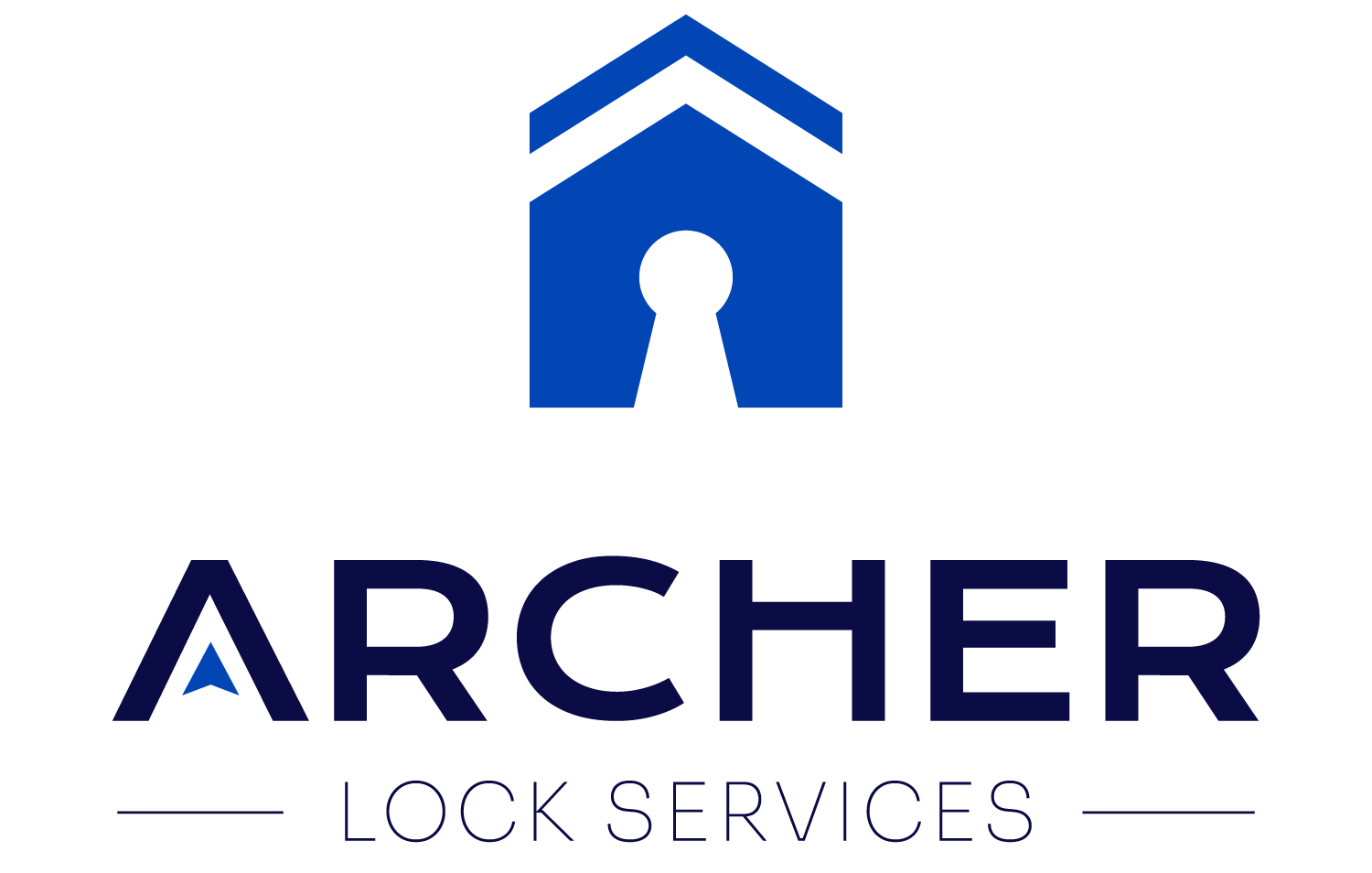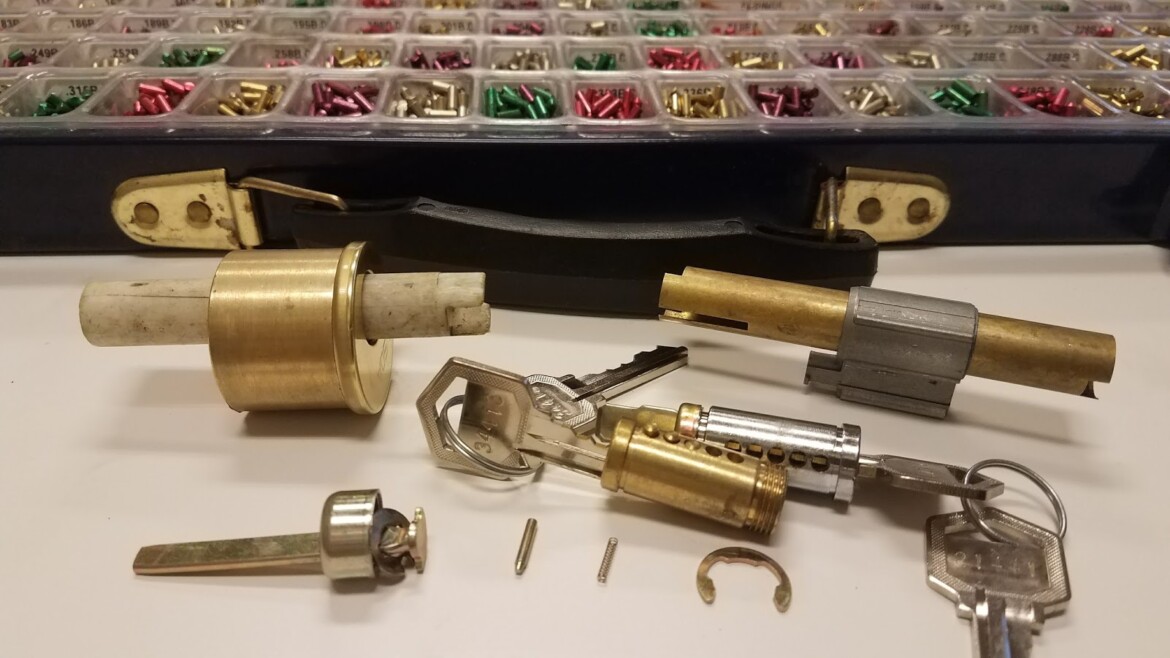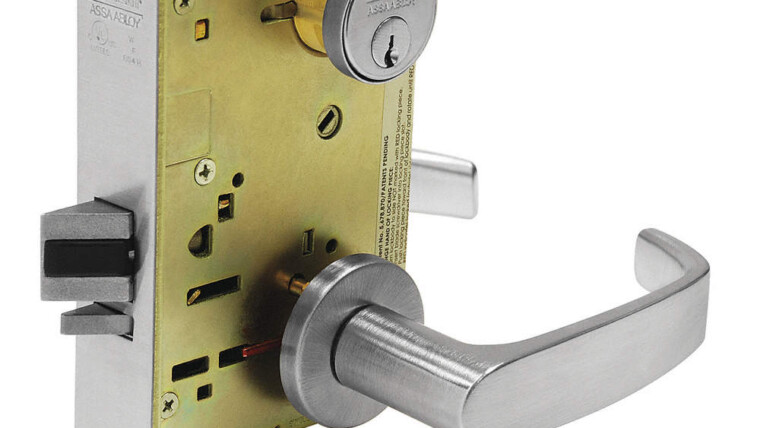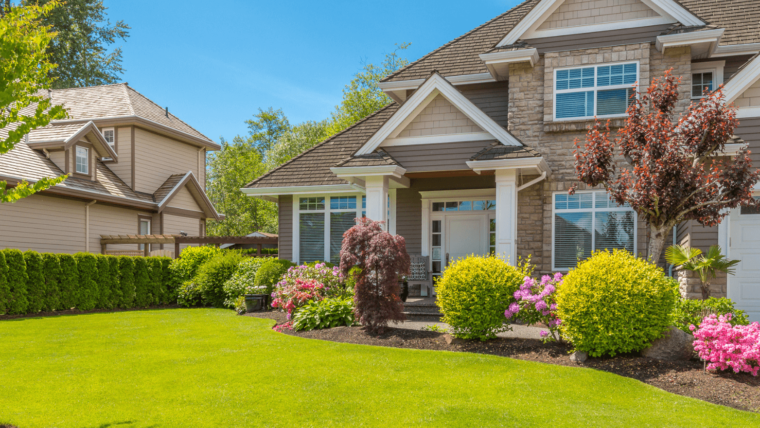As one of Vancouver’s most in-demand locksmiths, I get a lot of calls from clients asking about rekeying their locks. There are a lot of reasons why someone may need to rekey their lock. For example:
- Moving into a new office or residence
- Tenant moving in or out
- Lost or broken keys
- Uncertainty over who has which keys (aka key control)
- Security concerns
- Existing keys are hard to use
- Etc
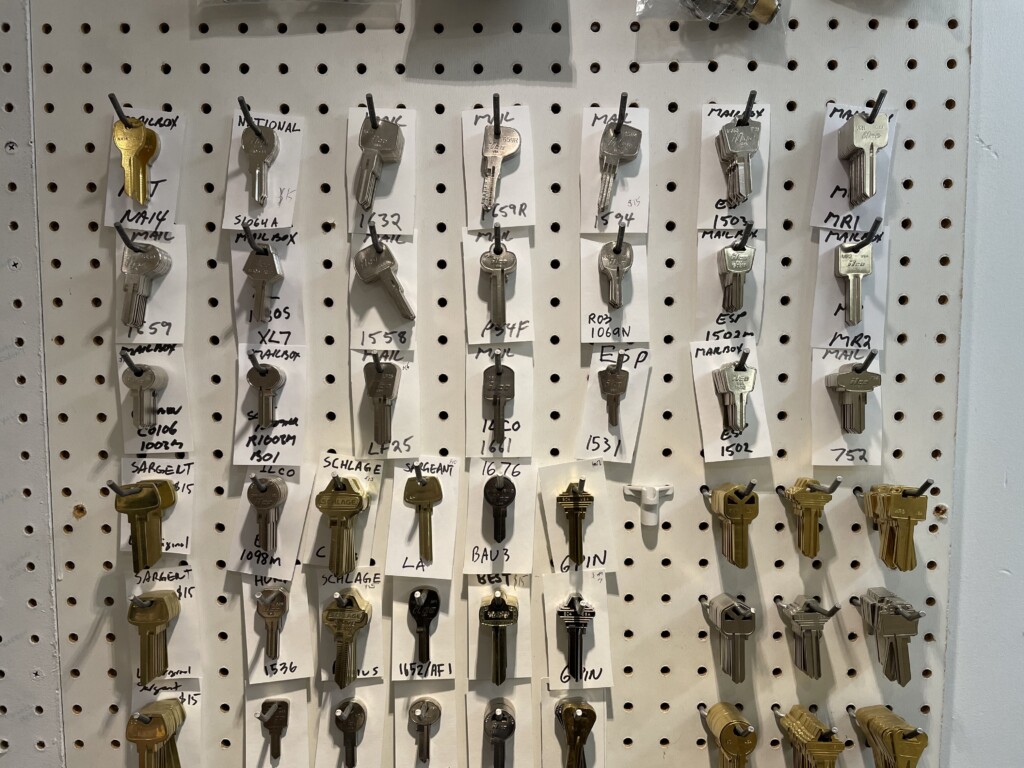
The same principles we will discuss here apply to both mechanical and stand-alone electronic locks. Stand Alone Electronic Locks refer to those that are almost always battery powered and not connected via wire or wireless to a central access control system. These include pretty much all the locks you can find at Home Depot/Rona/Lowe and on Amazon.
First, we should discuss the cost of a standard rekey. A standard rekey for me means the following keyways:
- Weiser 5 pin (WR1 to WR5)
- Kwikset 5 pin (KW1 or WR6)
- Schlage 5 and 6 pin (SC1 or SC4)
These 3 keyways probably cover 90% of the residential and 60% of the commercial locks in Vancouver. You will find even the off-brand locks like Defiant, Facto, Titan, and etc use one of these 3 keyways.
If you are not sure what keyway you have, please call or text me at 604-363-2760 or email me at alex@locksmithvancouver.com. We’re happy to take a look and guide you through the process of key identification.
As of the time of this article, I charge $185 plus GST for a standard rekey. The cost can be broken down into $150 for the service call and $35 for the fuel surcharge. I hope the price of diesel stays below $2 per litre so that I can reduce the fuel surcharge. This service call includes the labour to rekey the first lock (single or double cylinder) and up to 5 keys. Each additional cylinder costs $75 to rekey. Finally, bulk and cash discounts are available.
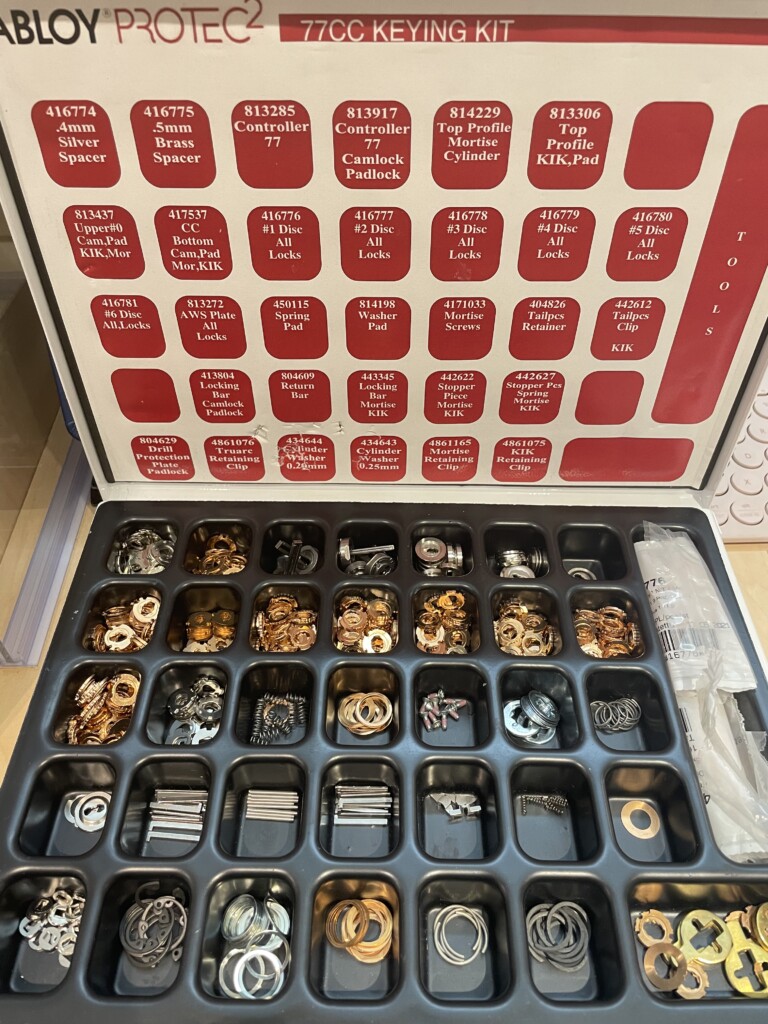
So right off the bat, we can see that most Residential Grade electronic locks are worth rekeying. Even a basic Schlage BE365 Electronic Deadbolt costs just a little more than a rekey, so it’s worth rekeying vs getting a new lock. More advanced locks with Wifi and Bluetooth capabilities are even more expensive, so they are even more worth rekeying.
However, the caveat with Residential Grade electronic locks is that you should not be using the key in the first place. The key is meant for emergencies such as if the battery dies and you are locked out. In a $200 electronic lock, $190 went into the electronics and less than $10 went into the key cylinder. Manufacturers will use the cheapest key cylinders they can get away with. There’s hardly ever any brass, it’s just cheap pot metal not meant for frequent use.
Locks like the Google Next Yale Lock drop the pretence of having a key cylinder altogether. This lock is one of the very few without a key override. If the battery dies, there is a terminal below the lock where a battery can be used to power the lock temporarily. For this reason and its ease of use, it is my Residential Electronic Lock of choice for those seeking all the bells and whistles.
That’s not to say it’s a perfect lock. It has a few flaws, but overall, it is a great lock. If you want a simple no-frills electronic deadbolt that is super dependable, I would recommend the Schlage BE365. While it is not a heavy-duty lock, its simple design offers the longest battery and operational life.
On a side note, if you have a mechanical or an electronic lock with a SmartKey Kwikset cylinder and lost all your keys, you may be out of luck all together. That particular cylinder requires a working key in order to perform a rekey. If you have lost all your working keys, you are better off just getting a new lock.
There is a special tool we can use to decode your SmartKey cylinder, create a new key, then rekey the lock. If the door is unlocked, we can use a special “cradle” to reset the lock as well. However, by the time we’re done, the labour cost will be greater than the value of the lock itself.
In any case, if you have a Weiser SmartKey lock, you really should get a better lock. There is a reason why none of our distributors carry these locks. There is no good reason to have these locks except for their relatively low price point. They are supposed to be easy to rekey by the homeowner, but it is also so easy to make a mistake and make the lock completely unusable.
Of course, it goes without saying that no one should be using SmartKey locks in an office or commercial setting. Brass and Stainless Steel content are one of the key indicators of lock quality and the SmartKey has none. It’s made of a soft aluminum-like alloy that deforms and breaks easily.
If you have a Commercial Electronic Lock like the Schlage CO Series, AlarmLock Trilogy, Kaba Simplex and the like, you should definitely try to rekey your lock. Most of these locks still use the Schlage SC1 or SC4 keyways, so it’s a standard rekey as long as you have a working key. If you don’t have a working key, that will throw a wrench into the works.
If you have a master key system, it is worth rekeying simply because you will want the lock to be part of the existing system. Many of my Commercial clients have a pre-existing master key system. On the other hand, very few Residential clients have a master key system and almost all Residential Grade hardware are not meant to be master keyed. In lower-quality key cylinders, the presence of master pins will degrade the hardware much more quickly. We can do it, but we highly recommend upgrading to at least Grade 2 hardware before you do.
FYI, we currently charge $25 per cylinder per level for master keying in addition to the standard rekey cost. If you have a master key system and want to learn more or want to implement a master key system, please call or text Vancouver’s Locksmith at 604-363-2760 or email me at alex@locksmithvancouver.com.
Now if you only have one lock, I generally recommend rekeying locks that are Grade 2 or better. In my experience, it’s usually not worth rekeying Grade 3 hardware unless it falls into the category of Architectural Hardware. These are the slightly more unusual locks with different styles and finishes that are not off-the-shelf. Generally, these include brands like Emtek, Karscher, Baldwin Estate/Reserve/Prestige, Schlage B & F Series, and so on. If you are not sure, give me a call or text with a picture of your locks, and I will tell you right over the phone. You can also email me at alex@locksmithvancouver.com.
If you have more than one lock and they are keyed to the same key, regardless of the brand, this falls under the realm of master key systems and they will probably be worth rekeying.
Most commercial key cylinders are worth rekeying. However, they tend to suffer a lot of abuse compared to residential locks. As a result, depending on their condition, I may recommend replacing some cylinders as rekeying may not make the keys work any better.
One of the worst types of rekeying jobs involve reusing a client’s existing key to rekey a lock. A client may already have multiple copies of the key floating around and does not want to hand out new keys. While understandable, if the client’s key is worn or has been incorrectly cut, it could create a nightmarish situation where some keys will work and some keys won’t. The client won’t be happy and it’s a huge waste of time for everyone.
In these circumstances, I highly recommend the client start fresh and issue new keys to everyone. That way, we can ensure everyone has a perfectly working first-generation key. However, this is not always possible given the situation and the client’s budget.
Most of the off-brand Commercial lock brands like Canaropa, Dorex, GMS, Tell, Ilco, and Spartan can be rekeyed multiple times without any issue. The gold standard brands like Schlage and Sargent last even longer and offer better performance. They have tighter tolerances and are made of higher-quality materials. It’s like a Pontiac Sunfire versus a Honda Accord. The Sunfire will get you around, but you don’t expect it to have the same build quality as the Honda Accord.
Finally, if you have scissors or folding gates, you most likely have a Jimmy Proof Deadbolt. These locks were super common before the advent of cylindrical locks in the early 1900s. These days, they are mostly used on scissor gates. However, you may still see them on the doors of very old buildings. In Europe and the UK, they are still very popular along with ERA Night Latches. They are called Jimmy Proof because you could not use a shim to “jimmy” the door open. Which you could do to older Night Latches without deadlatches.
Due to their unpopularity in the North American market, there are not many choices when it comes to Jimmy Proof Deadbolts. The most common version in Vancouver and the Surrounding Areas is made by Ilco and it’s a very cheap lock. It is not meant to be rekeyed or master keyed. It comes out of the box with 2 keys. If you need new keys, you are meant to throw the whole lock away and replace it with a new one.
The problem is that the Ilco key cylinder is held together by two metal clips that deform upon removal. They’re not even made of spring steel. As such, once you disassemble the cylinder, it has been permanently damaged.
There are some scissor gates in Vancouver that use a different style of Jimmy Proof Deadbolt. They have a dial-like looking face that you use the key to unlock then turn the dial to the lock or unlock positions. I have found that these use odd keyways like the Tesa from Europe which makes them almost impossible to rekey.
In my experience, the most prolific scissor gate installer/manufacturer in Vancouver is Allspan which is a company based in Surrey. They do great work, and they have a custom made Jimmy Proof Deadbolt that is probably the best in town. The lock housing is made from a single solid piece of metal and it’s heavy duty. The Ilco version is really light and cannot take a lot of abuse, unlike the Allspan version.
Allspan locks are almost always worth rekeying as they are quite expensive and of great quality. The only downside I’ve found is that they are designed to accommodate GMS 1” mortise cylinders which limits our client’s ability to use higher security cylinders.
We have installed 6-pin Sargent and Schlage Cylinders in Allspan locks but they have to be the lower quality GMS versions. We have also installed High-Security Abloy Protec2 Cylinders in these locks. So while they can be upgraded, the longer cylinders will stick out of the lock a bit.
If you have any questions regarding rekeying or master keying your locks, please call or text me at 604-363-2760 or email me at alex@locksmithvancouver.com. We’re happy to have a chat and discover how we can make your day better!
